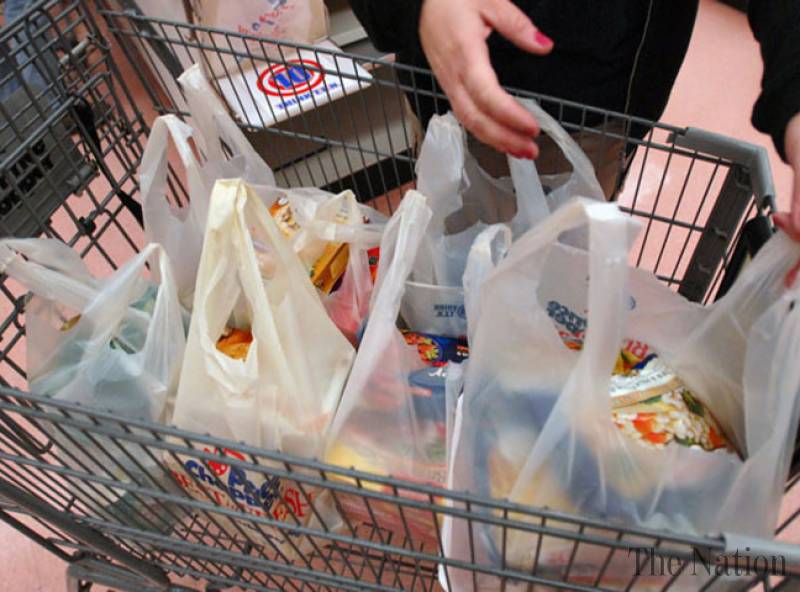Islamabad – Pakistanis use 55 billion polyethylene shopping bags every year, a severe environmental threat, as these high density bags may take over two decades to degrade.
According to Ministry of Climate Change data, the use of plastic bags is on the rise at the rate of 15 percent per year.
There are about 8,021 production units in the country with average production capacity of 250-500 kgs per day, majority of them are cottage industry.
Approximately, 160,000 people are directly, and 600,000 people are indirectly dependent on plastic bag industry.
After the 18th constitutional amendment, Pakistan Environmental Protection Agency is mandated with its function under Pakistan Environmental Protection Act 1997 for protection, conservation and rehabilitation of environment in Islamabad Capital Territory. Pak-EPA had prohibited manufacturing sale and usage through district management but due to weak implementation, plastic bags are available at almost every store of capital no matter small or big.
According to officials, brick kilns are the major sources of pollution in capital. In order to reduce harmful emissions from brick kilns, the government will implement vertical shaft brick kiln technology. According to officials of Ministry of Climate Change, construction of a model brick kiln unit based on zigzag and vertical shaft brick kiln technology is underway with assistance of Swiss authorities. The brick kiln association is keen to switch over to new technology once it is successfully demonstrated for operation in Pakistan.
With the assistance of CDA and ICT, 16 brick kilns have been removed and shifted to the outer periphery of ICT. 27 brick kilns located in Zone IV and V near Benazir Bhutto International Airport have been demolished and brick kilns located within a radius of 12kms of airport would be shifted elsewhere and those located between the radiuses of 12kms to 20kms would have to install smoke control devices.
There are 12 steel units which are causing pollution in Sector I-9/I-10, despite strict monitoring and legal action. Nine steel mills have installed on-line dust monitoring system, which is under monitoring by Pak-EPA and their efficiency is regularly checked. Legal action has been initiated by Pak-EPA against non-compliant steel mills for issuance of environmental protection order and its subsequent enforcement through ICT administration, official said.
During previous campaigns, Pak-EPA in collaboration with Islamabad Traffic Police checked over 40,000 public and private vehicles for exhaust emissions in Islamabad.
No doubt all above steps are very little as compare to pollution problem, but due to limited resources and lack of equipment, the EPA have not able to do much since last twenty years, said a senior official. He stressed the need of political will in implementing existing laws to eliminate pollution from capital and rest of the country and not cosmetic steps just
to create media hype.Source: www.nation.com.pk


